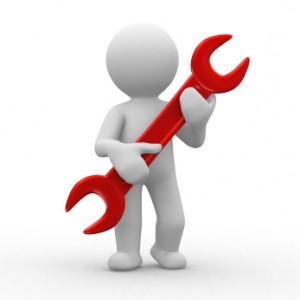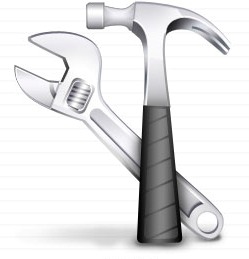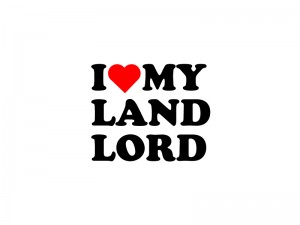Posted by Teresa on March 16, 2012 under Landlord Tips | 
 Pest control in rental properties requires mutual agreement and effort from both the landlord and the tenant. Unless a rental agreement specifically provides that a landlord will supply pest control services, he or she is not required to do so (check state and local statutes or housing codes for exceptions). Of course, severe insect infestations can contribute to health issues, which could lead to other violations, so most responsible landlords take care of pest problems.
Pest control in rental properties requires mutual agreement and effort from both the landlord and the tenant. Unless a rental agreement specifically provides that a landlord will supply pest control services, he or she is not required to do so (check state and local statutes or housing codes for exceptions). Of course, severe insect infestations can contribute to health issues, which could lead to other violations, so most responsible landlords take care of pest problems.
Here are a few tips to pass along to your tenants, to help keep pest populations under control—a mutually beneficial situation, for sure!
- Keep things clean: Empty the garbage regularly, wash pet food dishes often, and don’t leave dirty dishes in the sink. Wipe down the stove and kitchen counters every evening. Rinse juice, milk and soda containers before putting them in the recycling bin.
- Check out the plumbing: Report leaks immediately. Don’t allow standing water to accumulate beneath cabinets or on floors. Turn off faucets to avoid drips.
- Store food properly: Don’t leave boxes of cereals or bags of flour or sugar open. Store food in airtight containers.
- Inspect used furniture: Buying a chair or couch from a yard sale is a great way to save money. So is picking up free furniture from the side of the road. However, think about what’s coming in with the furniture. Check it for signs of infestation of bugs—especially bedbugs.
- Check your luggage: When returning from a trip, check all bags for signs of bedbugs, ideally before you leave the hotel, and again when you get home.
- Reduce pet pests: If you have cats or dogs, keep them pest-free with flea and tick medication.
- Landlords, do your part: Keep pests out by sealing gaps, caulking cracks and using stripping around doors. Install quality windows and doors that seal tightly, and treat only with people-friendly pest control when absolutely needed.
Posted by Teresa on December 14, 2011 under Landlord Tips | 
 If your rental properties are in cold-weather states, you could be in for a rough winter. Preparing a rental for winter storm season is an important part of maintaining your investment. Here’s how to limit the damage a storm can do:
If your rental properties are in cold-weather states, you could be in for a rough winter. Preparing a rental for winter storm season is an important part of maintaining your investment. Here’s how to limit the damage a storm can do:
- Trim dead tree branches and limbs: Snow, wind and ice can bring down branches, damaging property or causing injuries. They can also take power lines with them, which is even more dangerous.
- Clean gutters: If gutters are filled with leaves and debris, snow and ice can build up, causing damages to the roof an eaves, and eventually harming walls and ceilings.
- Check chimney flues: In units with working fireplaces, it’s important to have an annual inspection by a qualified professional. Creosote buildup can cause fires.
- Check each unit’s smoke and carbon monoxide (CO) detectors: If any unit has missing detectors, add them. If they run on batteries, replace the batteries each year. Now is a good time. Or, convert them to hard-wired units for even more security.
- Provide tenants with a Storm Preparation Tip Sheet: Prepare a list of instructions and tips to leave with each tenant, so they can consult it if a winter storm arrives. Give them tips on how to survive a few days without power, such as making sure they have flashlights, batteries, and adequate food and water on hand.
- Prevent frozen pipes: Instruct tenants to let faucets drip when temperatures are expected to dip way below freezing. Wrap pipes that are exposed to external walls with insulation or even layers of newspaper covered with plastic. Show tenants where water main shut-offs are located in case of emergency.
- Provide tenants with emergency numbers: Let them know how to reach you if a winter emergency occurs on your rental property. Let them know that downed power lines are especially dangerous, and to call the power company immediately (provide the number on a Storm Preparation Sheet).
Protect your rental property and assets through tenant background checks. Proper tenant screening will ensure you are leasing to the best possible tenants.
Posted by Teresa on December 8, 2011 under Landlord Paperwork and Forms | 
 If you’re like most landlords, you want to keep your investment properties in good shape. A well-maintained property appraises well, attracts quality tenants, can help you avoid liability issues and will save you money in the long run.
If you’re like most landlords, you want to keep your investment properties in good shape. A well-maintained property appraises well, attracts quality tenants, can help you avoid liability issues and will save you money in the long run.
Establishing a maintenance and repairs policy and setting up procedures that are clearly understood by your tenants and your maintenance person or company (even if that’s you!) can go a long way toward making this aspect of owning rental property much easier.
Rental Property Maintenance Procedures May Include:
- A regular inspection schedule, such as quarterly, set in advance, and preceded by 48-hour notice (or whatever your state requires);
- Keeping a tenant request tracking system or log to make sure that safety and other issues are handled within a reasonable time frame;
- Notifying tenants of repair and maintenance policies when they apply for a lease, at lease signing, and throughout the year;
- Providing tenants with several maintenance report forms to use throughout their lease term;
- Establishing a response time for each category of tenant complaints: safety, emergency, routine, etc.;
- Contact information for maintenance problems that are reported during the day, after hours, or on holidays.
Rental Property Maintenance Policies Typically Specify:
- Tenant responsibilities: changing light bulbs (for safety), and promptly reporting safety hazards like loose floorboards or railings, blown fuses, clogged plumbing and electrical problems.
- Landlord responsibilities: repairing hazards immediately, replacing air filters regularly, checking heating systems annually, responding to tenant complaints within a reasonable (stated) time frame and providing a safe, habitable residence for tenants.
Maintaining your rental property and responding promptly to tenant requests are vitally important to your business. In some cases, tenants may be entitled to withhold rent if maintenance issues are not addressed. And you never want to be responsible for a health problem or injury that occurs due to improper maintenance or repairs.
Posted by Teresa on November 4, 2011 under Landlord Tips | 
 If you’re a landlord, it’s a good idea to try to save energy and heating fuel in your rental properties—especially since heating bills are predicted to hit record highs this winter. And even if your tenants pay their own heat bills, isn’t it in your best interest, as well as theirs, to save them money if you can? When things are tight, as in this continued tough economy, helping tenants save money can keep you rent payments coming in steadily.
If you’re a landlord, it’s a good idea to try to save energy and heating fuel in your rental properties—especially since heating bills are predicted to hit record highs this winter. And even if your tenants pay their own heat bills, isn’t it in your best interest, as well as theirs, to save them money if you can? When things are tight, as in this continued tough economy, helping tenants save money can keep you rent payments coming in steadily.
What are the best ways to save more on heating by saving energy?
- Tax credits: Federal tax credits of up to $500 for energy-efficient appliances, furnaces and insulation installation. The money comes right off your taxes, and helps pay for the initial investment. If gas water heaters are more than 12 years old, consider replacing them.
- Rebates: States and utility companies offer rebates on furnaces, energy-efficient appliances, and other fuel-saving investments. Furnaces over 15 years old can often be replaced with more efficient ENERGY STAR rated models.
- Adding insulation: Many older homes are insufficiently insulated. Check into adding new insulation on your rental properties. Consider increasing ceiling insulation too. It’s easy to wrap the hot water tank with jacket insulation—very effective, especially if it’s an older model.
- Lower the thermostat: 68 degrees during the day and 55 at night is comfortable for most people. Every degree lower in the 60 – 70 degree range saves up to 5% of heating cost.
- Replacing or cleaning furnace filters: Dirty filters increase energy use. Keep them clean by changing often. If you do the replacing yourself, you also have the chance to check on your property and tenants.
- Get out the caulk: seal leaks around windows, doors, and where pipes and electrical conduit enter your building. Check under bathroom and kitchen sinks, the basement and utility closets.
- Install storm windows: for single-pane windows, storms are super-efficient. Or replace old windows with double-panes.
- Encourage tenants to use cold water when washing clothes: it reduces energy use by 75%. And remind them to clean the lint trap on the dryer after every load.
Saving energy takes information, an investment and a commitment. But the rewards can be enormous—especially if everyone does their part. Landlords could qualify for rebates that pay for upgrades, so why not look into them?
Posted by Teresa on August 31, 2011 under Landlord Tips | 

Now that the kids are starting to return to school, landlords can turn their attention to fall maintenance duties at their rental properties. Now is a good time to schedule routine maintenance and inspections at all your rental units, and see what you’ll need to do over the next few months to prepare for winter.
8 Landlord Tips for Fall:
- Don’t wait until the first cold snap to discover the heat isn’t going to work. Turn on the furnace at your rental properties, and make sure it runs. Give new tenants a lesson on how it works, and what signs for problems to be on the look out for.
- While you’re at it, change the furnace filters. You could even leave several behind and ask tenants to change them on the first of the month (after they pay the rent, of course). If your tenants don’t remember to change them, you’ll have a handy stack to do it yourself next time you stop by.
- Change the batteries in smoke and CO2 detectors. Remind tenants not to remove the batteries—ever—even if the detector is beeping.
- Locate all water shut-off valves. Prevent water emergencies by showing tenants where the water main, water heater, and any other valves are located. Then instruct tenants on how to turn them off in case of emergency.
- Speaking of water heaters, drain a few gallons from the tank through the drain valve to remove sediment that can interfere with performance.
- Remove any outside garden hoses and cover outside faucets. Install inexpensive insulators to prevent freezing pipes—and expensive repairs.
- Check handrails on stairs and railings on decks. Before things start to get slippery, be sure they are in good shape, or repair them if they are not. Making sure all are secure can prevent serious injuries to tenants and visitors.
- Finally, look around while you’re in each unit, to gauge how tenants are treating the property. If you see signs of damage, point out that nipping it in the bud can help them keep more of their security deposit when moving day comes.
Posted by Teresa on July 16, 2010 under Landlord Tips | 
 Whole volumes could be written about the difference between “damage” and “wear and tear;” but every landlord knows that tenants can be hard on a rental property. Most landlords have walked into a rental unit for a move-out inspection and been shocked at the damage they discover.
Whole volumes could be written about the difference between “damage” and “wear and tear;” but every landlord knows that tenants can be hard on a rental property. Most landlords have walked into a rental unit for a move-out inspection and been shocked at the damage they discover.
Don’t fall into the habit of performing all damage repairs and maintenance when you’re between tenants. Granted, that’s the best time to clean carpets, repair floors, and replace appliances. But it’s too easy to feel pressured if your tenant is anxious to move in. That’s when small problems and repairs will be neglected.
Conducting periodic inspections and continually maintaining your rental property is the only way to stay ahead of the game—and protect its value. The old adage, “a stitch in time saves nine,” has never been so true. Repair expenses just keep rising; between labor costs and materials, you’re definitely going to be better off fixing a problem while it’s small.
Keep these repair supplies in your vehicle to take care of issues while they’re manageable:
- Hinges and latches (standard sizes and colors for all your rental unit will make this easier)
- Paint and brushes or shoe-polish-like applicators
- Floor scratch cover
- Rhino Glue
- Duct Tap
- Spackle
- Extra linoleum tiles
- Basic tools
- Garbage Bags
During periodic inspections, do a quick check on window locks and frames, door knobs, locks, hinges and frames, woodwork and trim, and cabinet doors. Tighten any that need it. Look up at the ceiling and inside kitchen and bathroom cabinets for signs of water damage. Listen to the toilet to see if it’s running. Drips and leaking toilets are easily repaired, and if caught early, can prevent serious damage later. See to scuffs and chips on walls and cover with a bit of paint.
If you have a great handyman you can call on for jobs that are above your skill level, great! If not, you should develop a relationship with one. Ask around your network for recommendations. Electricians and plumbers specializing in quick response or small jobs are also valuable to have in your contact list. You never know when you’ll need any of these pros.
By keeping on top of rental property maintenance, you’re doing yourself a big favor when you’re pressed for time between tenants—and you could be preventing the headaches and repair bills that come from neglecting rental property.
Posted by Teresa on May 14, 2010 under General | 
 Whether hiring an outside contractor for regular maintenance, emergency repairs, or both, landlords need to know a few things first—especially if they’ve never hired a contractor before. It’s important to keep your rental properties in good working order and safe for your tenants—so having a great repair person can bring you peace for mind. Besides, they’re a good investment in your business.
Whether hiring an outside contractor for regular maintenance, emergency repairs, or both, landlords need to know a few things first—especially if they’ve never hired a contractor before. It’s important to keep your rental properties in good working order and safe for your tenants—so having a great repair person can bring you peace for mind. Besides, they’re a good investment in your business.
1. Is the contractor a member of your local building and remodeling association? Call them and find out! These associations are great sources for information and referrals. And generally, their members are experienced professionals who see value in associating with other professional contractors.
2. Is the contractor licensed and insured? Most localities and states require contractors to hold proper licenses. Most also require liability insurance—and closely scrutinize contractors. Before hiring one, ask your repair professional or contractor to show you their license and insurance coverage documents. Just because they say they do doesn’t mean a thing—and you don’t want to find out after they walk off your job or damage your property that your contractor has neither a license nor insurance!
3. Find out how they collect deposits and progress billings. We’ve all heard the nightmare stories of homeowners and landlords who are swindled by unscrupulous contractors. Paying large deposits—or the entire estimate in full—before the work has started is a risk. Some landlords never seeing the contractor again—and it happens every day. If your contractor is licensed by the state and a member in good standing of your builder’s association, you stand a better chance that they are reputable.
4. Does the contractor have excellent references? A good estimate and friendly personality doesn’t mean you should sign a contract. Too many people don’t check references—so too many dishonest contractors get away with illegal activities. Ask for references and call them. And be suspicious if they are too good—you could be talking to a friend of the contractor!
5. Does the contractor have a criminal past? As a landlord, you are responsible for the safety of your tenants. Imagine the potential liability of allowing an ex-con, thief, or sex offender around your tenants and their neighbors. For complete security, consider running a background check on the contractor you choose—before you sign the contract!
Posted by Teresa on May 3, 2010 under Landlord Tips, Tenant Screening & Background Checks | 
 Landlords are happy to share information to help out their fellow rental property owners—especially when it comes to saving money, time, and trouble. Here is a round-up of some of our favorite easy-to-implement ideas.
Landlords are happy to share information to help out their fellow rental property owners—especially when it comes to saving money, time, and trouble. Here is a round-up of some of our favorite easy-to-implement ideas.
Out with the carpeting. If you own an older rental building or home, there are probably hardwood floors lurking beneath that worn-out carpeting you’re getting ready to replace. Get rid of the carpet, and you’ll never have to buy another roll of carpet again. And you don’t have to refinish the floors, either—you can simply paint them. Look for special floor paint in a dark color, like brown or dark grey. Just roll it on and cover a multitude of sins. And no more carpet burns or stains! Keep in mind this type of paint takes longer to cure, and is subject to scratching for about 30 days. So don’t blame your new tenants if they scratch an uncured floor when they move in!
Replacing cabinets, counters, or hardware? Check recycled building materials stores first! Most larger cities have Re-Stores, run by non profits like Habitat for Humanity. These stores carry all kinds of building materials, from shingles to clawfoot tubs. Besides great prices, these stores keep a lot of trash out of the landfill. It’s all about recycling these days. They’ll even take your leftover renovation materials as a donation—which could mean tax savings for you (check with your professional tax advisor, please).
Invest in a digital camcorder. The come in handy for rental property inspections, move-in/move-out checklist making, and for those times you need to prove a point to a tenant—or even to a judge! For example, a landlord we know was faced with tenants who didn’t believe he got complaints about their dog barking when they were away. A simple recording of the apartment door (with their number) and the barking coming from behind it was enough to prove his case.
Trust your gut: If you have a bad feeling about a potential tenant, save yourself time and worry—don’t rent to them. Just make sure that you are basing your decision on legally-binding reasons, such as length of employment, income, and credit history—not appearance, disability, or any other reason protected by the Fair Housing Act. The best way to treat applicants fairly is to require background screening, credit check, and criminal history check on all tenant applicants.
Posted by Teresa on September 8, 2009 under Landlord Tips | 
 A landlord we know wouldn’t dream of performing his own property maintenance. Show Dave a leaking faucet, and he’s soon pulling out his Blackberry to call a trusted plumber. But this year, Dave is seeing a trend he hasn’t dealt with before—his profits have been squeezed by more tenant turnover and reduced rents.
A landlord we know wouldn’t dream of performing his own property maintenance. Show Dave a leaking faucet, and he’s soon pulling out his Blackberry to call a trusted plumber. But this year, Dave is seeing a trend he hasn’t dealt with before—his profits have been squeezed by more tenant turnover and reduced rents.
So Dave has decided to learn how to take care of minor repairs and routine maintenance on his rental properties—and he’s probably not alone! More and more landlords are becoming their own handymen and women. If you’re one of them, here are a few tips and tricks that might come in handy.
- Use separate tool totes for each area of maintenance. Purchase inexpensive handle totes: blue for plumbing, red for painting, green for general repairs, and so on. Load each tote with the appropriate tools and supplies—and don’t forget to include How-To manuals or books!
- Each tote should contain an assortment of screwdrivers, screws, bolts, and nuts, as well as gloves appropriate to the task.
- The general repair tote will serve you well if you stock it with duct tape, wood glue, super glue and drill bits. A level and socket tester will both come in handy, as will a razor blade/knife tool and socket wrench set. A hammer and a rubber mallet are musts.
- For your plumbing tote, make sure you have channel lock pliers, plumbers’ tape, and an assortment of wrenches.
- Load your painting tote with painters tape, spackle and a spackle knife, plus touch-up applicators filled with the standard paint colors you use in your properties. These look like shoe polish applicators, and can be found in hardware stores.
- Cordless tools will be your best friends! Make sure you charge them after each job, so they’re ready to use again.
With economic challenges continuing, you might need to learn how to perform repairs and maintenance on your income property—but remember to call in the professionals for potentially dangerous and complicated jobs, like electrical work and major carpentry or plumbing repairs!
Remember, you are within your rights when
screening tenants prior to leasing. For more landlord resources, including forms and information on
tenant screening, turn to
E-Renter.com. You’ll know that you have the best possible tenants when you
prescreen tenants.
Posted by Teresa on May 7, 2009 under Landlord Tips | 

The good news is that at least as far as Google is concerned, far more people express love than hate for their landlords. A Google search for “love my landlord” yields 432,000 results, while “hate my landlord” yields a mere 163,000 results. There’s absolutely nothing scientific about this statistic, but if you’re a landlord, maybe it will make you feel better about yourself!
Combing through hundreds of websites, we compiled our list of popular rants and raves. Maybe it will give you ideas about what to do, and maybe more importantly, what not to do when dealing with your tenants!
The Raves, or Why I Love my Landlord:
- My landlord fixes/replaces things when they need it
- My landlord leaves me alone
- He gives me what I need when I need it
- She hasn’t raised the rent when she could have
- My landlord lets me have my dog/cat/bird/iguana
- She treats me fairly
- He is kind
- He keeps the property clean
- She doesn’t put up with noisy/bad tenants
- My landlord gives me plenty of notice for inspections and repairs
The raves seem pretty simple, don’t they?. Tenants want good communication and to feel respected. They also like to be able to keep pets and to keep renting without rent increases! Of course, going a little beyond the expected is always appreciated. Now for the rants. . .
The Rants, or Why I Hate my Landlord:
- My landlord turns off the water with no notice
- My landlord won’t call for emergency repairs after normal business hours because it’s too expensive
- My emergencies are not my landlord’s emergencies: over 24 hours without water is too much
- Our building/property is a mess
- Things don’t work properly: electrical outlets, stove burners, a/c units, heat
- The electrical system is not safe
- My landlord hires creepy repair/maintenance workers
- My landlord says “absolutely no pets”
- They won’t give me even one day’s grace period on the rent
- My landlord favors some tenants over others
- My property management company came to my apartment four times over the last two weeks without an appointment
- My landlord lets himself into my apartment without my permission
- My landlord makes me feel like I’m being watched
- I have ants/roaches/mice/creepy crawlies in my apartment
- They’re showing my apartment to potential new tenants at all hours
We did find a few more rants than raves. In fact, much of what is out there is not suitable for this blog! Landlords who have good relationships with their tenants would probably never dream of some of these behaviors.
Overall, the landlord lovers seem genuinely happy with their relationships. One said, “I love my landlord. I wish I could find a man like her.”
What type of landlord are you? Are your tenants raving or ranting to the world? Knowing what your tenants like—and what they don’t—can help inspire love, loyalty, and great tenant behavior. And maybe your tenants will soon be sharing all the reasons why “I love my landlord.”
 Pest control in rental properties requires mutual agreement and effort from both the landlord and the tenant. Unless a rental agreement specifically provides that a landlord will supply pest control services, he or she is not required to do so (check state and local statutes or housing codes for exceptions). Of course, severe insect infestations can contribute to health issues, which could lead to other violations, so most responsible landlords take care of pest problems.
Pest control in rental properties requires mutual agreement and effort from both the landlord and the tenant. Unless a rental agreement specifically provides that a landlord will supply pest control services, he or she is not required to do so (check state and local statutes or housing codes for exceptions). Of course, severe insect infestations can contribute to health issues, which could lead to other violations, so most responsible landlords take care of pest problems.








